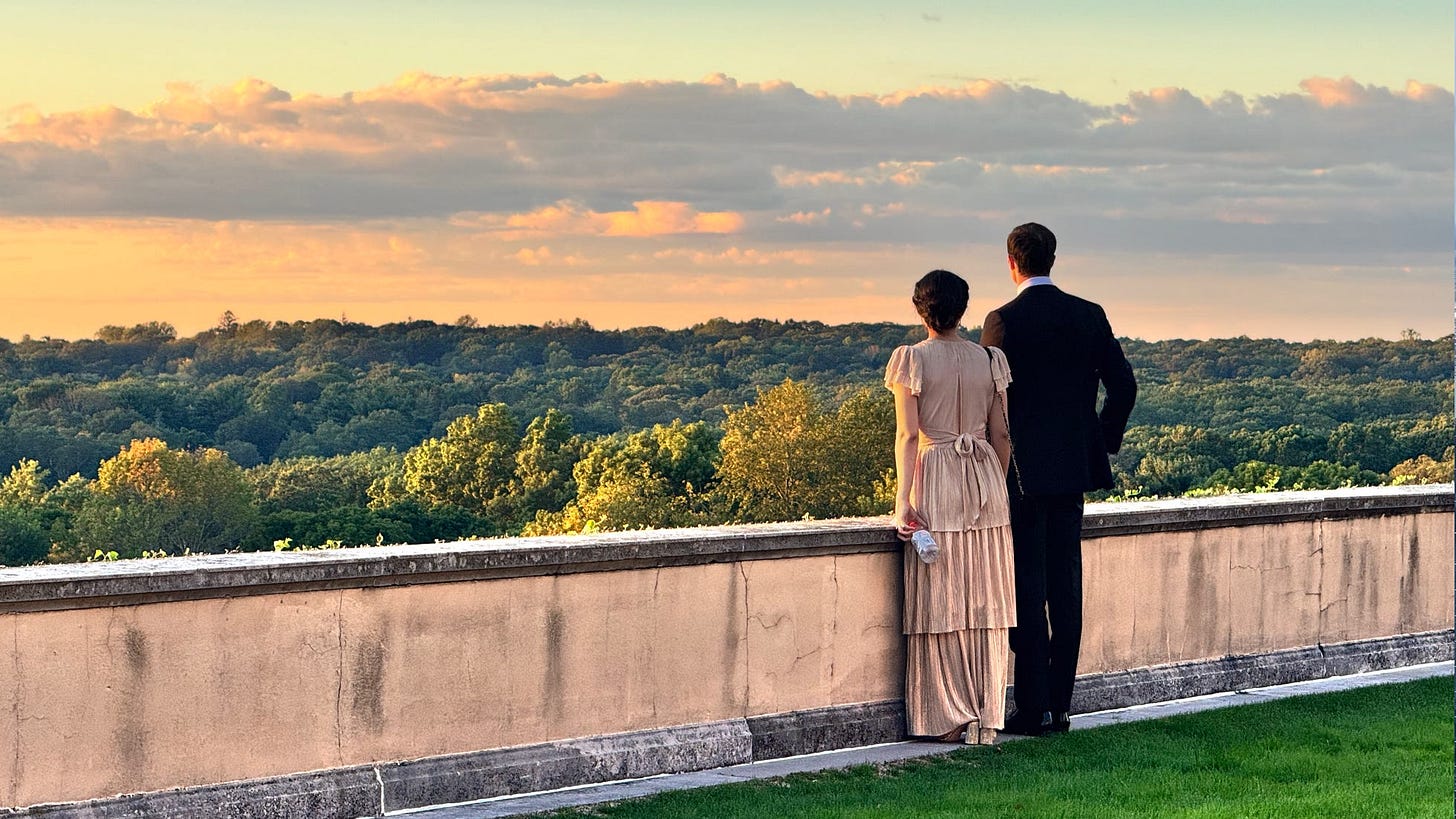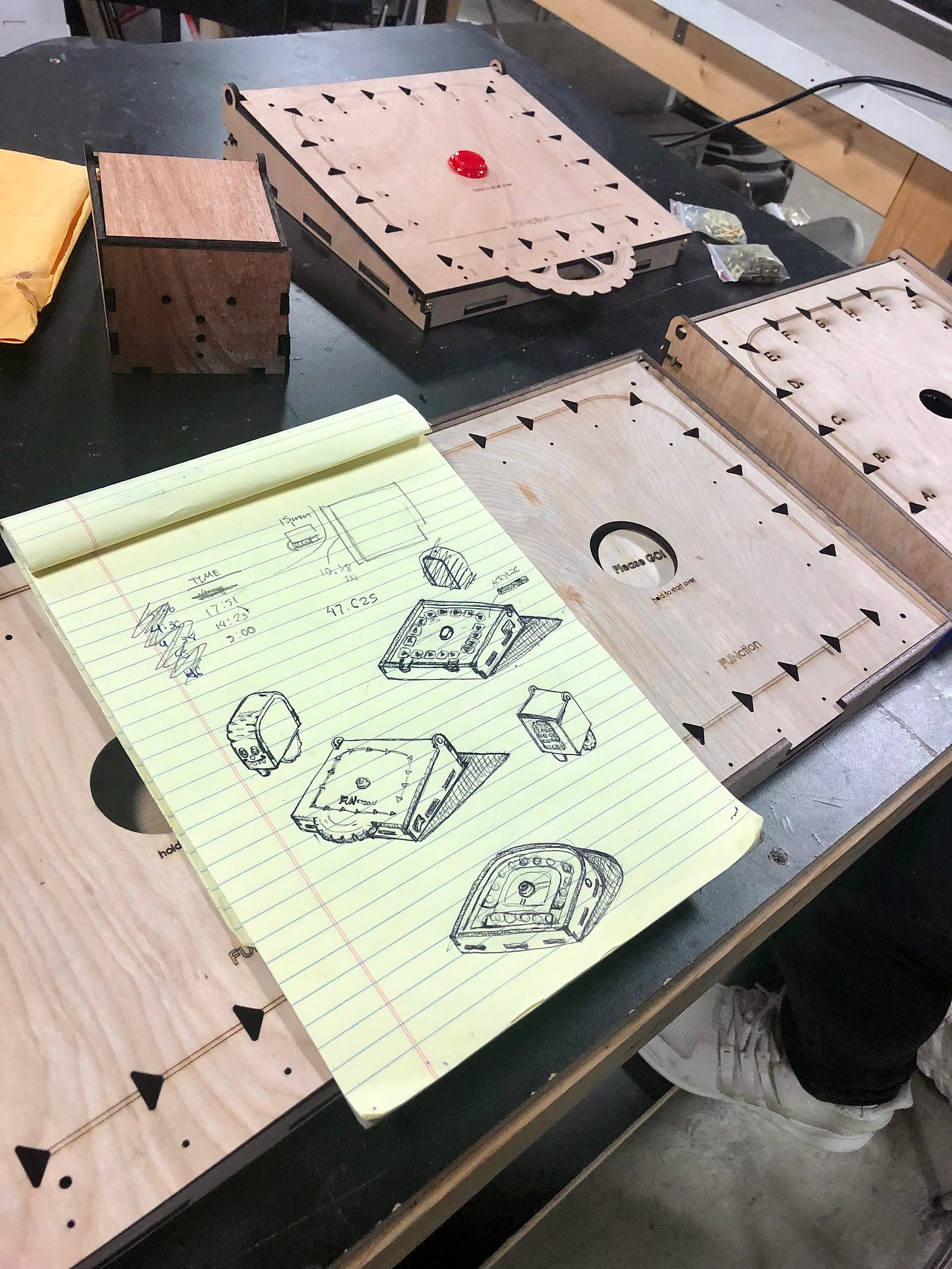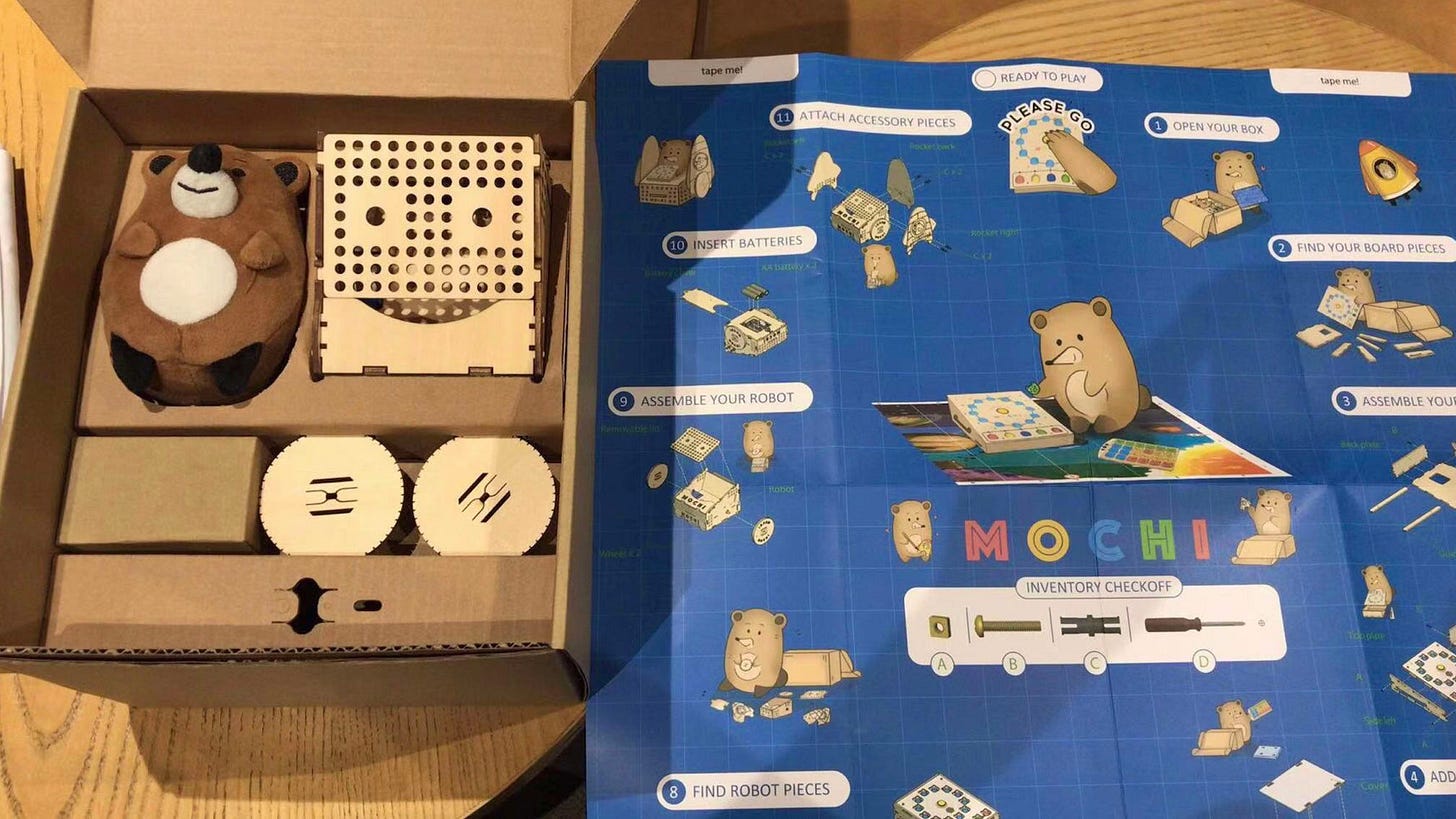In college, my first love was anthropology: studying things from afar, because dreams served me better as an ideal than a destination. And because dreams are immaculate, unsullied by life’s disappointments, distance preserved its perfection and purpose.
It took years after college to realize I was no longer preparing for life.
“This was it! I was in it!”
I spent my first several years out of school performing adulthood, waiting for answers to materialize as I plodded along. In my twenties, I had the good fortune of trying on a variety of sectors, industries, company stages, and functions until I found a niche I loved. Some opportunities were dumb luck, like getting recruited into big-company software after the head of org saw and ordered my Kickstarter for his six year-old son. Others took sheer force of will and suspension of disbelief, like figuring out AI/ML commercialization for a 50-person data lab trying to win over Fortune 50 customers.
At first, I brought more enthusiasm than experience to every opportunity that endeavored to have me. Later, I learned to stop waiting for permission and just do it; to recognize opportunity instead of waiting to be recognized; to be generous opening the door for others and invite others to step through. Rather than wait for someone else to knight me, I learned to reach down and lift the next one up.
Before there were any customers or prototypes, there was just belief. The day Learn With Mochi got our first check, the wire cleared just after 1:25pm PST. I remember exactly where I was: curled on the couch, laptop on a pillow in my lap, Bank of America portal open, and a text from the family office that simply read: Sent.
There’s no confetti when the wire hits, no drumroll, no sudden swell of music. It’s a notification, a refresh of the page, and the eery feeling that something imaginary just crossed into the real. My first reaction:
“Did I just commit fraud?!”
I was so used to VC rejection by then that it felt like I’d successfully conned the universe into thinking I was someone with an idea worth betting on. In the months after Mochi’s fundraise, I kept waiting for some canonical milestone: a product prototype, customer feedback, anything to crown me and make me feel official.
That didn’t happen. Even after closing our round, securing an office, building prototypes, holding factory samples in my hands, user-testing with volunteers around the world, living in China to untangle manufacturing and supply chain, and shipping to families in 30-something countries for Christmas, I never felt official.
What I learned in the intervening years is this: there’s no magical moment that happens to let you know you’re real. You have to give yourself permission.
Because when external permission arrives (a seed check, a customer pre-order, a Forbes feature, a thousand orders, ten thousand more), you won’t feel triumphant. You’ll feel like it’s the world that made a mistake about you. When all along, the only missing alchemy was internal conviction. Everything is make-believe until we will it.
What I love most about Silicon Valley is its permission structure:
In private equity, you do the math: 1+1 must equal 2.
In investment banking, you sell the dream: 1+1 equals 3 (synergies, M&A).
In startup land, you ask: how can we make 1+1 equal 11?
This is powerful because it empowers every player to grow the pie, not redistribute it. It gets us out of zero-sum games. Old-world power structures stake legitimacy on “How many people can we exclude?” Think: elite college admissions, eating clubs, seats in a first-year analyst program. Any game where I win means you lose.
A delightful emergent property of digital technology is the the emergence of new-world power structures predicated on “How many people can we include?” Think: social networks, marketplaces, app stores, creator platforms, open source. Any business model where scale economies benefit the entire ecosystem.
The genius of Silicon Valley is its audacity: suspend disbelief long enough to turn fiction into fact. So must we. Every identity is a startup of one: unproven, unfinished, waiting for conviction to catch up to belief. For years, I lived like a meek hypothesis: hedged, deferred, waiting for a sign. It took years to learn that identity, too, is something you will into being and forge over fire. Send the bat signal. Make the commitment. Take the leap of faith. If nothing happens, you exercise self-authorship. If anything does, you gain new insight on your thesis of self.
In my twenties, I resisted the work of long-horizon career formation because that required making trade-offs, and trade-offs meant I’d risk losing out on something better that could, theoretically, come along. Instead, I opted for a productive non-choice. What I wish I knew about making a vocational choice back then is not so different from what I know about finding and committing to a life partner now:
There is no calculus to derive “Good Enough”. There is only what we are willing to accept, trade off, and work with. Someone is special because we choose to believe they are special. We make them special. That’s it. That’s the secret.
We make it the right choice.
They say America is the land of opportunity. This is true. But a buffet of opportunity is a poor substitute for purpose. The future is built by those who sought opportunity then extended their hands to say: “Come in, there’s room for you too.”
Such is the American Dream.





